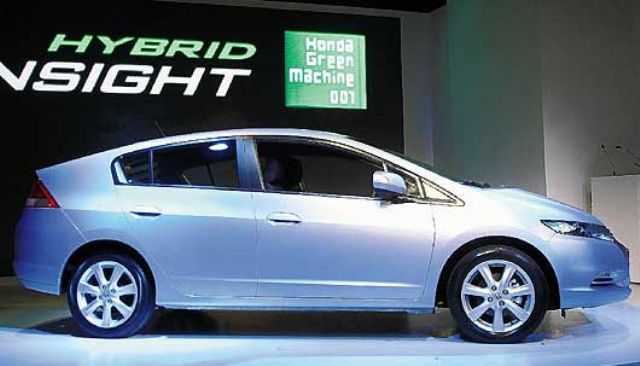Taiwan to Stop Subsidizing High-priced, Big-displacement Hybrid Cars
2015/01/26 | By Quincy LiangTaiwan's Ministry of Finance (MOF) recently promulgated a rule to stop subsidizing hybrid cars unable to meet any one of four criteria: sub-NT$1 million (US$33,333) retail price, sub-3,000c.c. engine displacement, sub-19 km-per-liter fuel efficiency, and sub-120 g-per-km carbon emissions.

The immediately effective rule disqualifies most imported hybrid cars in Taiwan from enjoying the government subsidy made available for the past six years: 50% deduction in commodity tax.
According to MOF, as of the end of October 2014, the accumulated commodity-tax deduction totals NT$11 billion (US$366.7 million), with each of the past six years having seen about 10,000 hybrid cars sold qualifying for the commodity-tax deduction.
Existing vehicle commodity tax in Taiwan is based on engine displacement to range between 25% and 30%, with battery electric vehicles (BEVs) and hybrid cars also qualifying for tax deduction. An imported hybrid car with FOB price of NT$2 million (US$66,666) enjoys commodity-tax deduction of about NT$350,000 (US$11,666) earlier but no longer under the new rule.
MOF says the new rule will become effective when the legislature completes reading of the modified 12th commodity tax statue, which is expected to continue subsidizing hybrid cars sold in Taiwan, but with a ceiling of NT$100,000 (US$3,333) without qualification.
The Ministry said that hybrid cars with high prices and big displacements can not be categorized as a popular product; while big-displacement hybrid cars could burn more fuel and emit more carbon than gasoline, diesel counterparts, and hence should not qualify for commodity-tax deduction so as to be fair.

